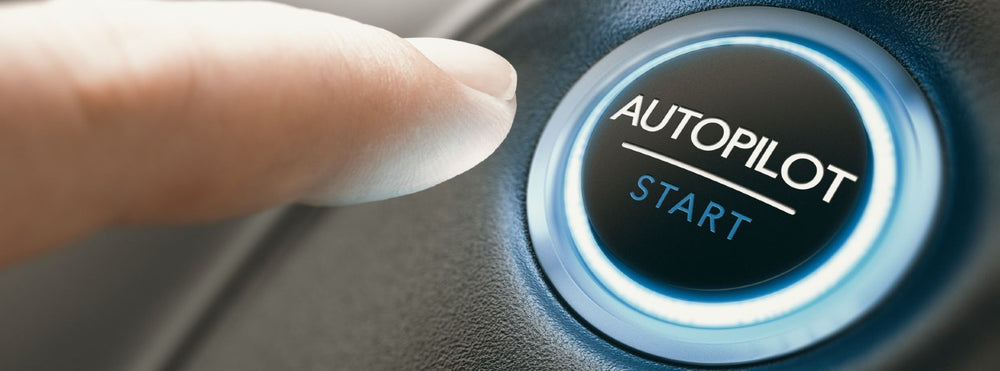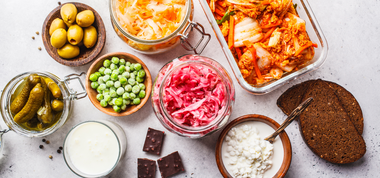Put your healthy habits on autopilot

In a previous blog I debunked the myth of relying on willpower to change our health trajectories.
As a follow-up, in this blog, I'm sharing several evidence-based tips for what works to help you make lifelong, sustainable healthy habits. The goal is to develop habits that are so automatic that you don’t need willpower. You’re no longer making conscious decisions to drink more water or exercise; it’s just part of your day. Research shows that about 43% of our daily actions are done on repeat, in the same context. In other words, those actions are habits.
So how can we put more of the actions that are good for us on autopilot?
First of all, be consistent. If you’re trying to eat more fruits and vegetables and less junk food, for example, think of a certain context when you could consistently do that. If you usually munch on potato chips while watching television, that would be a good time to grab an apple or bunch of grapes instead. It’ll take time, but eventually, you’ll automatically head to the fruit bowl when you turn on the TV.
Make healthy actions easier. An important concept in learning new behaviors is the idea of friction, or resistance. You can design your environment to make healthy habits as easy – as frictionless - as possible. That’s exactly what I’ve done with Step One Foods; taken the hard work out of consuming heart-healthy nutrients. But you can do this yourself in other ways to help build health. If your goal is to go to the gym, for example, buy a membership at a gym as close to your home or office as possible - so it’s easy to get to and not much of a disruption to your usual travel patterns. Keep your gym bag stocked with workout clothes, shoes, and shower products so heading out the door is as effortless as possible. If your time to exercise is first thing in the morning, you might even think about sleeping in your gym clothes! The idea is to remove any impediments, however trivial, to the pursuit of your health goal.
Make unhealthy actions harder. The flipside is also true. Adding obstacles – or friction - to actions that are taking you away from your health goals can be effective in helping you avoid them. When the FDA banned cigarette vending machines, for example, smoking rates dropped simply because it became harder to get cigarettes. So if you want to stop drinking soda, don’t keep any in the house. And don’t even walk down that aisle in the grocery store!
Build in rewards. As I outlined last week, actions become habits faster if there’s an immediate reward. That’s why it’s so easy to build bad habits; many of them come with short-term rewards. Like the upswing in energy you may get from eating a cookie or two or three. Healthy habits tend to come with benefits that take longer to materialize, so you have to get creative to add in shorter-term rewards. For example, I binge the TV shows I’m really interested in only when I hop on the treadmill, and listen to the podcasts I find engrossing only when I go for a run. And I never have my cup of coffee (a favorite beverage) until I’ve completed that morning workout.
Finally, be patient. This habit stuff takes time. And we will all fall off the wagon from on occasion (I still have potato chips from time to time when watching TV!). The important thing is to give yourself grace, don't allow yourself to simply throw in the towel, and try to be better next time. Health is a journey that we re-commit to each and every day.

Tested & Proven Results.
- Cardiologist formulated
- Supported by over 500 publications
- Clinically-proven, in a double-blind randomized trial with Mayo Clinic and The University of Manitoba
80% of participants lowered their cholesterol in just 30 days. With just two servings per day, Step One Foods offers a proven-effective way to naturally lower LDL (bad) cholesterol.
Get heart health tips and articles like this, delivered right to your email.
New articles every week.
You may also like...

You don’t need to avoid foods with cholesterol…except for these




